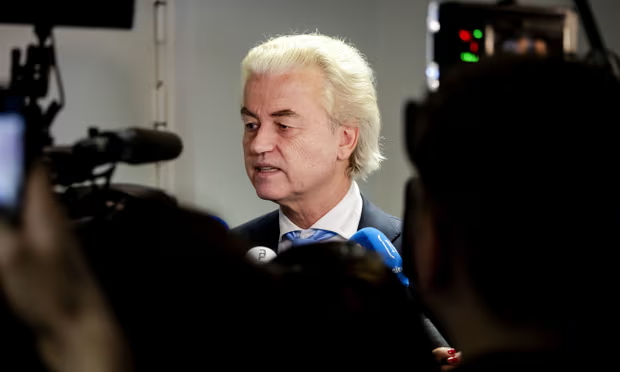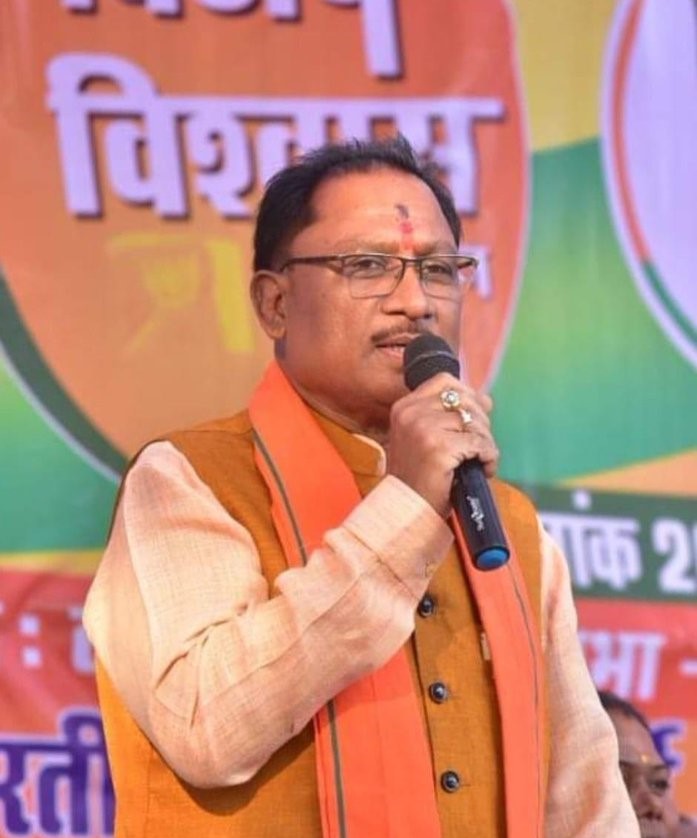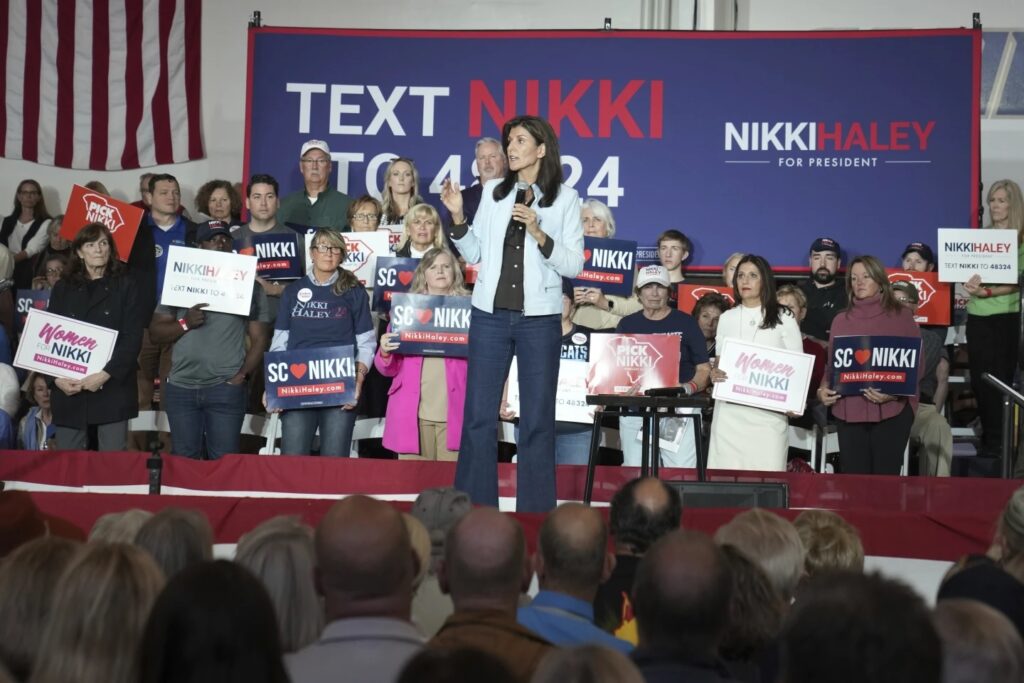Geert Wilders Faces Early Setback in Coalition Talks Amid Scout’s Resignation Over Fraud Allegations

Far-right Leader Geert Wilders Seeks New Coalition Negotiator
The aftermath of last week’s elections in the Netherlands has brought both success and setbacks for Geert Wilders, the leader of the far-right Party for Freedom (PVV). While the PVV secured an impressive nearly quarter of the seats in the 150-seat Dutch parliament, exceeding predictions by around 10 seats, Wilders’ initial attempts at coalition talks suffered a blow with the resignation of his appointed scout, Gom van Strien, over fraud allegations before formally commencing his role.
In Dutch political tradition, the scout plays a pivotal role in facilitating discussions among party leaders to forge a coalition deal. However, allegations surfaced in the NRC Handelsblad newspaper, accusing Van Strien of “irregular” handling of commercial spin-offs from Utrecht University and University Medical Center Utrecht. This led to his withdrawal from the political process, creating an early stumbling block for Wilders in his bid to form a government.
Van Strien, in a statement released by the Dutch parliament, vehemently denied any fraud allegations and defended his integrity. Despite maintaining his innocence, he chose to resign, citing the disruption caused by media reports on his past and the necessity to prepare a response. The abrupt departure of the scout has prompted Wilders to regroup and seek a replacement, emphasizing the need for someone with “more distance from politics” to join the crucial initial meetings.
Geert Wilders, in acknowledging the less-than-ideal start to coalition-building efforts, expressed frustration at not being informed of the legal situation surrounding Van Strien earlier. However, undeterred, Wilders remains steadfast in his determination to pursue his goal of becoming the prime minister.
The Dutch coalition-building process, known for its complexity and potential interruptions driven by party politics, now faces a test for Wilders and the PVV. The leader aims to form a coalition that could potentially include the PVV, the right-wing VVD, the New Social Contract party led by Pieter Omtzigt, and the Dutch Farmer Citizen Movement (BBB) led by Caroline van der Plas. Among these, only the BBB has shown a strong inclination.
Pieter Omtzigt, who had previously excluded Wilders, emphasized the importance of respecting the election results and stated that his party would “take responsibility.” On the other hand, VVD leader Dilan Yeşilgöz-Zegerius expressed her unwillingness to serve in a government under Wilders but signaled openness to a confidence and supply arrangement.
Raoul du Pré, the chief political editor of the Volkskrant, noted that early statements from parties are part of the strategic posturing in the proportional and fragmented Dutch political landscape. Typically, the losing party signals a pause in negotiations, but if Wilders faces challenges forming a coalition, other parties may be invited to attempt.
Economists from the ING have highlighted potential economic impacts based on the manifestos of the four right-wing parties. Despite their shared stance on strict immigration limits, the economists noted that their proposed policies could lead to a “considerably expansionary” economy, resulting in increased demand for foreign workers.
As Geert Wilders navigates the complexities of coalition-building, the resignation of his initial scout underscores the challenges ahead. The evolving dynamics of Dutch politics, coupled with the willingness of other parties to collaborate with the PVV, will play a crucial role in determining the success of Wilders’ aspirations to lead the country. The upcoming weeks promise insights into how the far-right leader adapts his strategy, negotiates potential alliances, and shapes the future government of the Netherlands.


